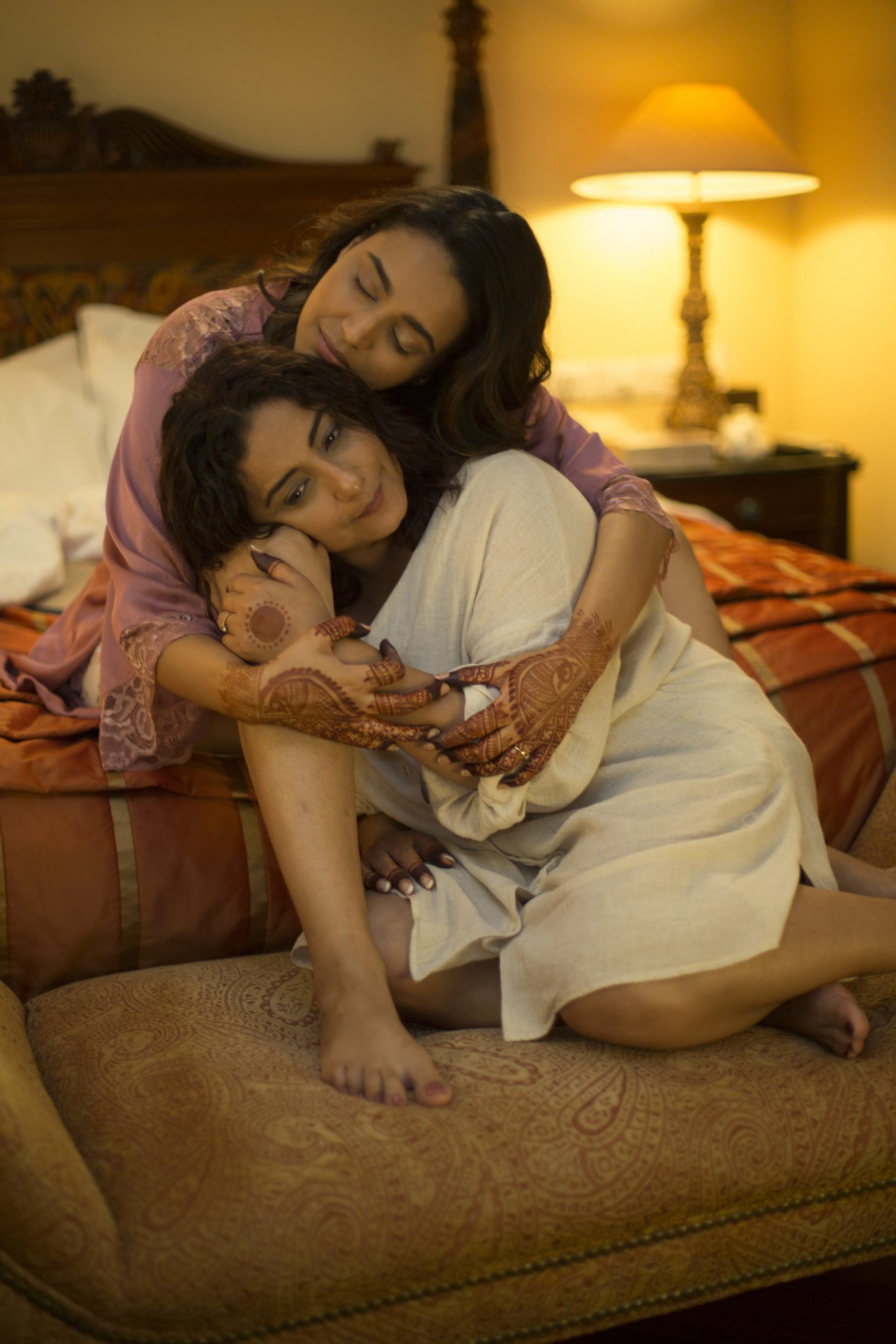

Srishti Chourasia spoke to the young writer and director on his upcoming LGTQAI+ film, Sheer Qorma and the importance of starting conversation on uncomfortable subjects
30-year-old Faraz Arif Ansari first came into focus because of the critically acclaimed short film, Sisak, India’s first silent LGBTQAI+ love story. Their upcoming film, Sheer Qorma, starring Divya Dutta, Shabana Azmi and Swara Bhaskar is a love story of queer women who choose to embrace their love beyond rigid South Asian social moralities.
Ansari, who identifies as a queer, non-binary person themselves says that, they wanted to make films since they were four years old and everything in their life so far has been about finding the right education and access to pursue the same. Talking about their growing up years, they say, “I was brought up in a house where storytelling has been a very integral part of everything. From my grandmother, to my Khalajaan (aunt) and my elder sister, to my mother, I am surrounded by these very courageous and powerful women who are all very accomplished storytellers not professionally but in a personal space. That really influenced me when I was growing up because even very mundane things used to be explained to me in a way that they became the most beautiful story ever written.”
Ansari believes in making films that are not only entertaining but also relevant to the times. “For every film that I do, the process has been very different because I think art by itself is far away from science. It’s emotional, it’s instinctive and organic.” They believe that a story finds its way to the creator. “Sometimes they come through a medium of a song, sometimes it’s the person you meet or the experience you had or a visual that you saw. It’s not limited to one medium or the other. It’s like being a voyeur in your own life,” they say. According to them, the process involves being honest with yourself, with the craft and the medium, everything else aligns automatically.
When asked about their favourite work so far, they say, their films are like their children and it’s really unfair to compare them. Instead, they believe that every film has its own journey and life. The beauty of it is to take a back seat and watch it unfold.
Talking about the under representation of women in films, they say that, even when we talk about the LGBTQAI+ spectrum, queer women are often missing from the conversation. They says they realised this when they were travelling with Sisak to 150 film festivals and were constantly thinking about the lack of films on queer women. “I was in Harvard university and someone asked me this question: Why didn’t you make this film about two women rather than men? That question really stuck in my head. When I was in an international film festival with Sisak again, I talked to many queer women and they said that they feel underrepresented in global cinema. Then I decided to make my next film on similar grounds”.
With Sheer Qorma, the director has tried to highlight the patriarchal and misogynistic barriers of society. “I identify as non-binary and Divya Dutta is playing the character of a non-binary in the film. She is representing me in a way. There cannot be a single way of being non-binary. The reason why the term non-binary is invented is to break shackles.” According to Ansari, since the trailer came out earlier this year, people have actually been curious about and tried to understand the term and what it means. “Now they know that there is something called non-binary as well. Moreover, Divya Dutta, an accomplished award winning actor is playing the role so everyone wants to listen to it.” They believe that characters like Divya Dutta can open more conversation on the subject, and it can go wider. “So sometimes you have to choose wisely what could be the best way of representation to tell a particular story to ensure the most impact.”

A still from Ansari’s upcoming film, Sheer Qorma
For Ansari, actors do not have a gender. They also add that, when we talk about representation, it’s not only about representation in front of the camera but also behind the camera. “Ninety five per cent of my crew was entirely women. From my producer to my editor, from my production designer, to entirely most of my HODs are women. That has not happened in an Indian film as sets are so male dominated.” Talking about making films on south Asian queer women, Ansari reveals the biggest challenge film-makers constantly face is to find producers to invest in their idea. “Sisak belongs to the pre 377 verdict era and Sheer Qorma belongs to the post 377 verdict era, but has the world actually changed after that? The answer is no. When I wrote Sheer Qorma and I started approaching producers a lot of them turned to me and said, why don’t you make this film about men and please change it from a Muslim family to any other religion. That’s the mindset we need to fight. It is a deeply embedded mindset of patriarchy, misogyny and Islamophobia.”
The only way to move past them, according to the director is to continue making stories that one believes in and finding the best people to support them, so that the voices can be heard in a larger way. “It is important to understand that access is very limited, we don’t have enough opportunities to present a sensitive real portrayal and representation of queer community.”
Their message to young film-makers everywhere is simple, “Film-making is a privilege and when you have that privilege, you have to use it wisely. One has to realise what a big responsibility it is. Secondly one has to be honest. When you see a film you realise whether it has been made to make money, to win hearts or both.”